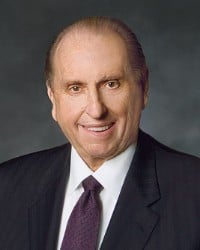
“Never let a problem to be solved become more important than a person to be loved.”
| "Finding Joy in the Journey," Conference October 2008
LDS Quotes on Service

“Never let a problem to be solved become more important than a person to be loved.”
| "Finding Joy in the Journey," Conference October 2008
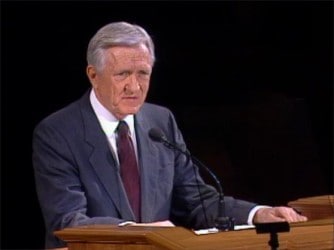
“We go to the temple to make covenants, but we go home to keep the covenants that we have made. The home is the testing ground. The home is the place where we learn to be more Christlike. The home is the place where we learn to overcome selfishness and give ourselves in service to others.”
| Ensign, May 1995, p. 12
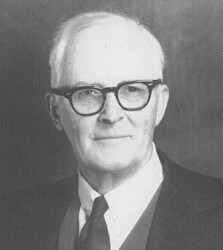
“Indolent and unworthy the beggar may be—but that is not your concern: It is better, said Joseph Smith, to feed ten impostors than to run the risk of turning away one honest petition.”
| Approaching Zion
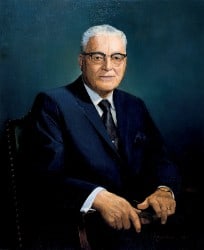
“During the Great Depression, Harold B. Lee, serving then as a stake president, was asked by the Brethren to find an answer to the oppressive poverty, sorrow, and hunger that were so widespread across the world at that time. He struggled to find a solution and took the matter to the Lord and asked, “What kind of an organization will we have … to do this?”…And “it was as though the Lord had said [to him]: ‘Look, son. You don’t need any other organization. I have given you the greatest organization there is on the face of the earth. Nothing is greater than the priesthood organization. All in the world you need to do is to put the priesthood to work. That’s all.’”
| transcript of welfare agricultural meeting, Oct. 3, 1970, 20.
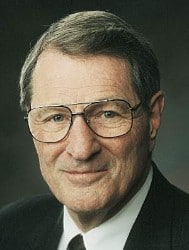
“The submission of one’s will is really the only uniquely personal thing we have to place on God’s altar. The many other things we ‘give’… are actually the things He has already given or loaned to us.”
| “Swallowed Up in the Will of the Father,” Ensign, Nov. 1995, 24.
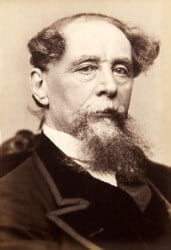
“No one is useless in this world who lightens the burden of it to anyone else.”
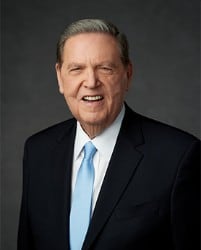
We obtain a remission of our sins by pleading to God, who compassionately responds, but we retain a remission of our sins by compassionately responding to the poor who plead to us.
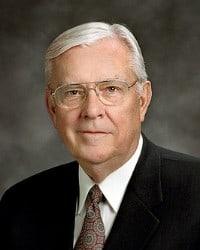
Simply stated, we minister because we love our Heavenly Father and His children. Our ministering efforts will be more successful if we keep our ministering simple. The most joy comes from the simple things of life, so we need to be careful not to think that more needs to be added to any of the adjustments we have received to build faith and strong testimonies in the hearts of God’s children.
| The True, Pure, and Simple Gospel of Jesus Christ
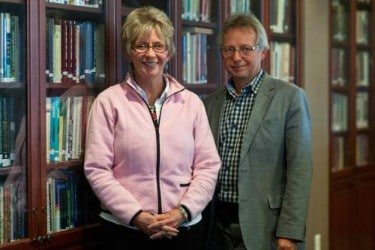
Nikolai Berdyaev taught the same principle:
“A false interpretation of ‘good works’ leads to a complete perversion of Christianity. ‘Good works’ are regarded not as an expression of love for God and man, not as a manifestation of the gracious source that gives life to others, but as a means of salvation and justification for oneself, as a way of realizing the abstract idea of the Good and receiving a reward in the future life. ‘Good works,’ done not for the good of others, but for the good of one’s own soul, are not good at all. Where there is no love, there is no goodness. Love does not require or expect any reward, it is reward in itself, it is a ray of paradise illuminating and transfiguring reality.”

In modeling our ministering after Jesus Christ, it is important to remember that His efforts to love, lift, serve, and bless had a higher goal than meeting the immediate need. He clearly knew of their day-to-day needs and had compassion on their current suffering as He healed, fed, forgave, and taught. But He wanted to do more than take care of today. He wanted those around Him to follow Him, to know Him, and to reach their divine potential.
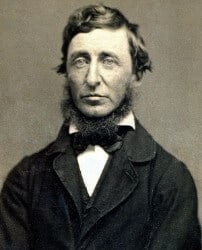
“Happiness is like a butterfly; the more you chase it, the more it will elude you, but if you turn your attention to other things, it will come and sit softly on your shoulder.”
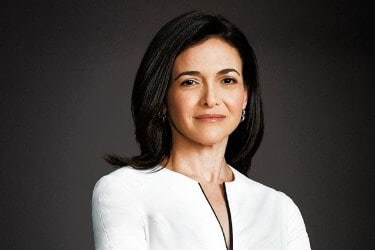
“I used to say, when someone was going through something hard, “Is there anything I can do?” And I meant it, I meant it kindly. But the problem is … that kind of shifts the burden to the person you’re offering the help to to figure out what they need. And when I was on the other side of that question, I didn’t know how to answer it. Is there anything you can do? Well, can you make Father’s Day go away so I don’t have to live through it every year? No. Rather than offer to do something, it’s often better to do anything. Just do something specific. My wonderful friends … tragically lost a son and they spent many months in a hospital before that. And one of his friends texted him and said, “What do you not want on a burger?” Not, “Do you want dinner?” Another friend texted and said, “I’m in the lobby of your hospital for an hour for a hug whether you come down or not.” Just show up.”
| "Just Show Up," NPR Article
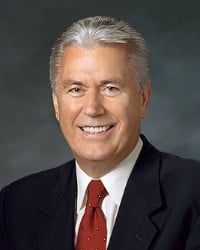
“You don’t need an invitation before you start moving in the direction of your righteous goals. You don’t need to wait for permission to become the person you were designed to be. You don’t need to wait to be invited to serve in the Church.
“We can sometimes waste years of our lives waiting to be chosen (see D&C 121:34–36). But that is a false premise. You are already chosen!”
| The Best Time to Plant a Tree
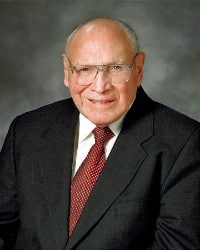
“When we fast, brethren and sisters, we feel hunger. And for a short time, we literally put ourselves in the position of the hungry and the needy. As we do so, we have greater understanding of the deprivations they might feel.”

“Human progress never rolls in on the wheels of inevitability; it comes through the tireless efforts of men [and women] willing to be co-workers with God.”
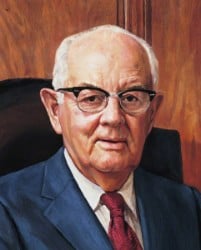
“Unless the way we live draws us closer to our Heavenly Father and to our fellow men, there will be an enormous emptiness in our lives. God does notice us and watches over us, but it is usually through another person that He meets our needs. Therefore it is vital that we serve each other.”
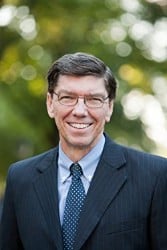
“When I have my interview with God, our conversation will focus on the individuals whose self-esteem I was able to strengthen, whose faith I was able to reinforce, and whose discomfort I was able to assuage—a doer of good, regardless of what assignment I had. These are the metrics that matter in measuring my life.”
| How Will You Measure Your Life?

I am a little pencil in God’s hands. He does the thinking. He does the writing. He does everything and sometimes it is really hard because it is a broken pencil and He has to sharpen it a little more.
| The Joy in Loving: A Guide to Daily Living
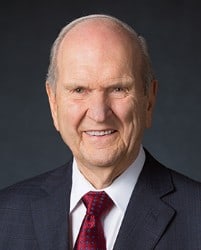
“Your priesthood quorums provide opportunities for friendship, service, and learning. But the responsibility to develop power in the priesthood is personal. Only as an individual can you develop a firm faith in God and a passion for personal prayer.”
| Personal Priesthood Responsibility, Conference October 2003
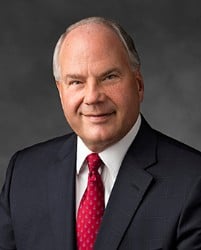
“If you come upon a person who is drowning, would you ask if they need help—or would it be better to just jump in and save them from the deepening waters? The offer, while well meaning and often given, ‘Let me know if I can help’ is really no help at all.”

“Reaching out to rescue one another under ANY condition is an eternal measure of love.”

You may feel that there are others who are more capable or more experienced who could fulfill your callings and assignments better than you can, but the Lord gave you your responsibilities for a reason. There may be people and hearts only you can reach and touch. Perhaps no one else could do it in quite the same way.

“We, more than others, should carry jumper and tow cables not only in our cars, but also in our hearts, by which means we can send the needed boost or charge of encouragement or the added momentum to mortal neighbors.”
| All These Things Shall Give Thee Experience

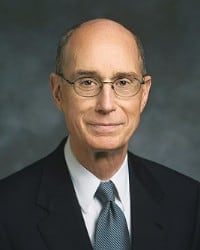
“Every person is different and has a different contribution to make. No one is destined to fail. As you seek revelation to see gifts God sees in those you lead in the priesthood—particularly the young—you will be blessed to lift their sights to the service they can perform.”
| Help Them Aim High, Conference October 2012

“The Lord and His Church have always encouraged education to increase our ability to serve Him and our Heavenly Father’s children. For each of us, whatever our talents, He has service for us to give. And to do it well always involves learning, not once or for a limited time, but continually.
“It is also clear that spiritual learning would not replace our drive for secular learning. The Lord clearly values what you will find in that history book. And He favors not only Spanish verbs but also the study of geography. His educational charter requires that we have “a knowledge also of countries and of kingdoms” (D&C 88:79). There is also an endorsement for questions we study in the sciences. It is clear that putting spiritual learning first does not relieve us from learning secular things. On the contrary, it gives our secular learning purpose and motivates us to work harder at it…Remember, you are interested in education, not just for moral life but for eternal life.
“Part of the tragedy you must avoid is to discover too late that you missed an opportunity to prepare for a future only God could see for you.”

“Our opportunities to give of ourselves are indeed limitless, but they are also perishable. There are hearts to gladden. There are kind words to say. There are gifts to be given. There are deeds to be done. There are souls to be saved.”
| The Gifts of Christmas, First Presidency Message, December 2003

“Because love is the great commandment, it ought to be at the center of all and everything we do in our own family, in our Church callings, and in our livelihood. Love is the healing balm that repairs rifts in personal and family relationships. It is the bond that unites families, communities, and nations. Love is the power that initiates friendship, tolerance, civility, and respect. It is the source that overcomes divisiveness and hate. Love is the fire that warms our lives with unparalleled joy and divine hope. Love should be our walk and our talk.”
| The Love of God, Ensign, Nov 2009, 21–24

“Long sufferers are really something because they think the errant and unrepentant are really something – something worth saving.”
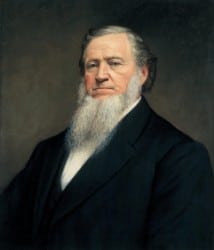
“But how are we to be made happy? There is one course—love the Giver more than the gift.”
| JD 9:31, Brigham Young, The Gifts of God, Etc.
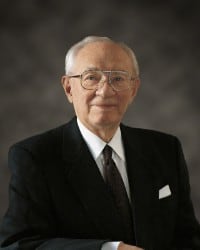
“Generally speaking, the most miserable people I know are those who are obsessed with themselves; the happiest people I know are those who lose themselves in the service of others…By and large, I have come to see that if we complain about life, it is because we are thinking only of ourselves.”
| “Whosoever Will Save His Life”

“In the end, the number of prayers we say may contribute to our happiness, but the number of prayers we answer may be of even greater importance.”

“Education is the difference between wishing you could help other people and being able to help them.”
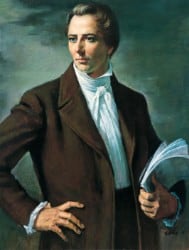
“A man filled with the love of God, is not content with blessing his family alone, but ranges through the whole world, anxious to bless the whole human race.”

“He who lives only unto himself withers and dies, while he who forgets himself in the service of others grows and blossoms in this life and in eternity.”

| Standing for Something: 10 Neglected Virtues That Will Heal Our Hearts and Homes

“God does notice us, and he watches over us. But it is usually through another person that he meets our needs. Therefore, it is vital that we serve each other in the kingdom.”
| “Small Acts of Service,” Ensign, December 1974, 5.

“Education is the power to think clearly, the power to act well in the world’s work, and the power to appreciate life.”

“In the performance of our responsibilities, I have learned that when we heed a silent prompting and act upon it without delay, our Heavenly Father will guide our footsteps and bless our lives and the lives of others. I know of no experience more sweet or feelings more precious than to heed a prompting, only to discover that the Lord has answered another’s prayer through you.”
| General Conference, October 5, 2002


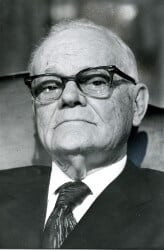
“No, the Lord doesn’t really need us to take care of the poor, but we need this experience; for it is only through our learning how to take care of each other that we develop within us the Christlike love and disposition necessary to qualify us to return to his presence.”
| “Living Welfare Principles,” General Conference, October 1981

Perhaps you don’t consider yourself all that useful; perhaps you don’t consider yourself a blessing in somebody’s life. Often, when we look at ourselves, we see only our limitations and deficiencies. We might think we have to be “more” of something for God to use us–more intelligent, more wealthy, more charismatic, more talented, more spiritual. Blessings will come not so much because of your abilities but because of your choices. And the God of the universe will work within and through you, magnifying your humble efforts for His purposes.
| A Yearning for Home
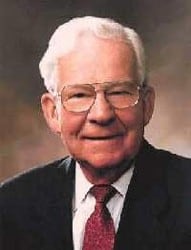
“A friend is a priceless possession because a true friend is one who is willing to take us the way we are but is able to leave us better than he found us. We are poor when we lose friends because generally they are willing to reprove, admonish, love, encourage, and guide for our best good. A friend lifts the heavy heart, says the encouraging word, and assists in supplying our daily needs. As friends we will make ourselves available without delay to those who need us.”
| BYU Speeches, 30 March 1982
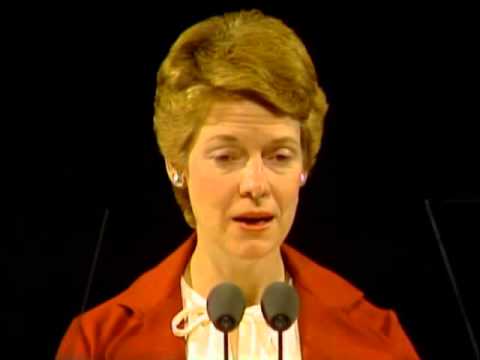
There is an old Relief Society story about a child who came in as his mother was putting the finishing touches on a cake. He asked: “Who are we giving that away to?” There is still merit in this little incident, as we can see that he is from a home where they are used to giving service to others.
| Finding Joy by Serving Others
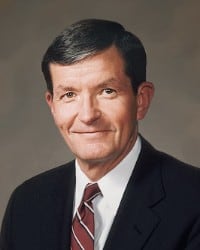
“When we begin to understand the magnitude of [the Messiah’s] sacrifice and service to us individually and collectively, we then cannot consider anything else to be of more importance or to approach His significance in our lives. “For most of us, this understanding does not come all at once and likely will not be fully complete during our mortal sojourn. We do know, however, that as we learn line upon line, our appreciation for the Savior’s contributions will increase and our knowledge and assurance of their truthfulness will grow.”
| "Perilous Times," Ensign, Nov. 2004, 50-51
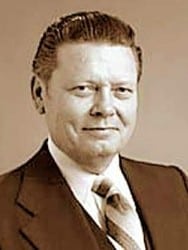
The Savior chose a very dramatic moment in which to emphasize the value of missionary work. He gave to his apostles the choice of their hearts. Peter said that he preferred to depart speedily from this life and be with the Savior in his kingdom. John the Beloved chose to stay behind and bring souls unto Christ.
Imagine the importance of that beautiful moment, Peter choosing to be with the Savior in his kingdom above; and yet the Savior turned and said to Peter, “John my Beloved has chosen the greater thing.”
| The Greatest Thing in My Life

No missionary that ever lived failed to influence the lives of many for the better regardless of the number of converts he may have gained.
| The Blessings of Missionary Service
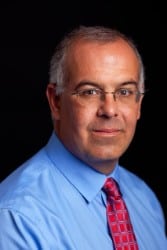
“Many of our society’s great problems flow from people not feeling seen and known. There is a core trait that we all have to get better at, and that is the trait of seeing each other deeply and being deeply seen.”
| "Finding the Road to Character"